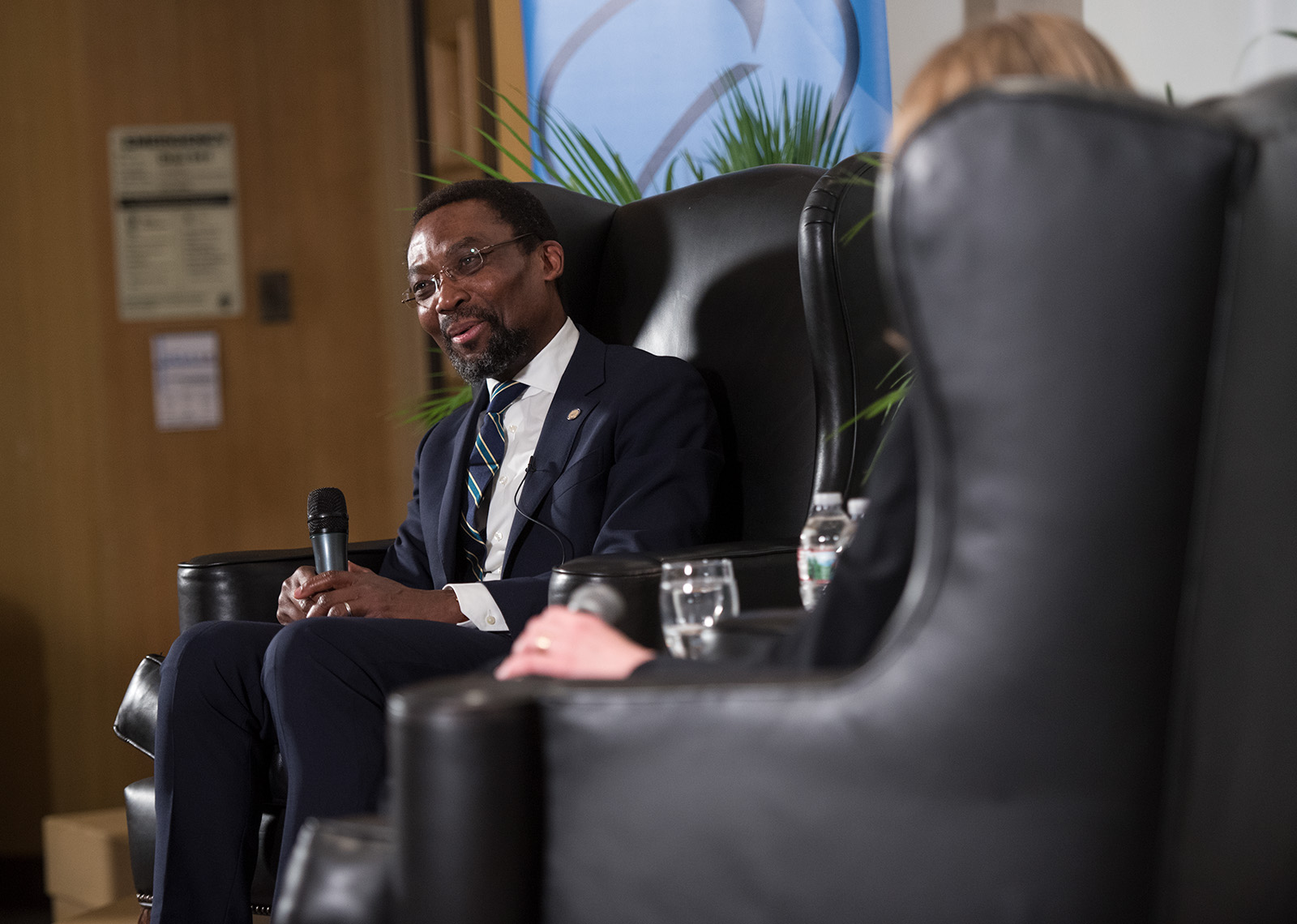International Criminal Court president responds to John Bolton’s sanction threats

Chile Eboe-Osuji, the president of the International Criminal Court, addressed claims from United States National Security Advisor John Bolton regarding the legitimacy of the court at an event Monday. Bolton threatened the court with sanctions in September if it prosecuted U.S. soldiers for alleged abuse of detainees in Afghanistan. (Niveda Tennety/Daily Bruin)
By Haya Fakhoury
Jan. 30, 2019 12:23 a.m.
The president of the International Criminal Court addressed a United States official’s claims that the court is illegitimate at an event Monday evening.
The event, which was organized by the Promise Institute for Human Rights, a subset of the UCLA School of Law, invited Chile Eboe-Osuji, president of the ICC, to discuss sanction threats made by John Bolton, the U.S. national security advisor.
Bolton threatened to impose sanctions on the court if it prosecuted U.S. soldiers for alleged abuse of detainees in Afghanistan.
Bolton said in a speech in September that the U.S. would not cooperate with the ICC or provide assistance to it, claiming that the court was illegitimate. Bolton added he was concerned the ICC would threaten the sovereignty of the U.S if U.S. citizens were prosecuted by the ICC instead of U.S. courts.
Kate Mackintosh, executive director of the Promise Institute, said she thought the event provided an open space for Eboe-Osuji to address Bolton’s threats.
“I thought it was a good idea to invite him to speak because UCLA provides him a safe academic environment to respond to John Bolton’s comments against the ICC,” Mackintosh said.
The ICC was established under the Rome Statute, a treaty that defined the court’s function, jurisdiction and structure.
Eboe-Osuji said the ICC must act according to the principle of complementarity, or the idea that the court only takes action when a state’s government does not address injustice.
“(The ICC only steps in) when the state is unable to do justice or when the state that is able to justice … is unwilling to do so. Primary jurisdiction belongs to the states and … the ICC jurisdiction is secondary,” Eboe-Osuji said. “When states do not act to injustice is the only time when the ICC steps in.”
Harpreet Ahuja, a student at the School of Law, said she was interested in the idea that legal authority primarily lies with the states, then the ICC.
“I found it interesting that judicial independence comes in since primary jurisdiction belongs to the state and leaves the ICC as a court of the last resort,” she said.
Eboe-Osuji added he believes the U.S. is reluctant to participate in the investigations of the court in general because it does not want to fall under the jurisdiction of the ICC.
However, Eboe-Osuji said the ICC can only act as a last resort when state governments do not take action, and it can only investigate and prosecute the four core international crimes: genocide, crimes against humanity, war crimes and the crime of aggression.
He added the U.S. played a prominent role in the court’s establishment.
“It is incorrect for an American to see the ICC as a foreign establishment,” Eboe-Osuji said. “It is in fact one highly associated with the U.S. because of their major role in its establishment.”
Eboe-Osuji said one of the articles of the Rome Statute is based on the idea that no one is above the law. He added he thinks this concept is a fundamental American value.
He said he believes the ICC plays a key role in enforcing justice internationally.
“The purpose of the ICC is to bring justice to victims, hold people accountable for war crimes and stand against those who threaten humanity,” he said.
Eboe-Osuji said he thinks the ICC should focus on doing what it was intended to do under the Rome Statute.
“We need to keep our eyes on the ball,” Eboe-Osuji said. “We need to focus on what the Rome Statute was created to do.”

